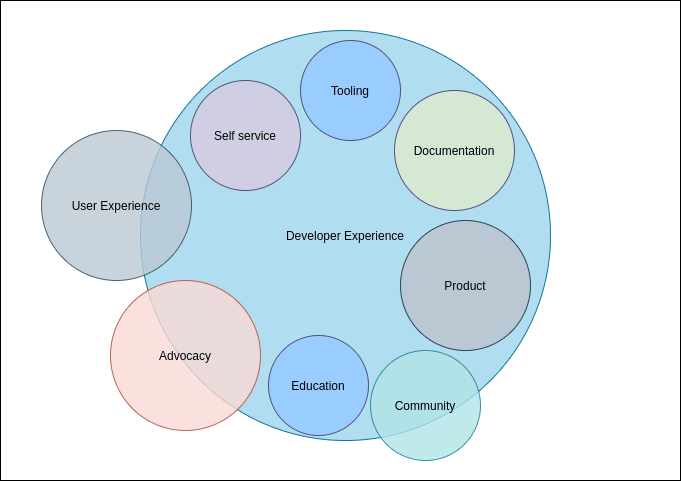33
What is Developer Experience and why should we care?
Information Technology (IT) is undoubtedly one of the most important industries today and one that is ever-growing. Every company is becoming an IT company these days. From Taxis to food delivery to banking, every industry is dominated by companies that are IT companies first and domain second. With that growth, the demand for software and tools used by other developers also grows.
As an industry it took us some time to realize the importance of user experience (UX), you will understand what I'm talking about if you have tried using the internet or any software before the 2000s, but fortunately, we took notice, and today there are entire departments dedicated to user research and UX in software development.
User experience matters for any software, but if your primary consumers are developers, then there is something else that matters more than UX. Its developer experience (DX) as developers make IT possible.
It is the overall feeling that a developer gets when using a technical product in her/his development workflow. It is akin to UX but from a developer's perspective. Let's take an example for the sake of non-developer folks out there.

Let's say you are building a cool and fancy product that lets developers add an image gallery to their applications, as part of the product you provide:
Now for a developer who would use this product the DX is going to be the sum of:
- how easy it was to onboard
- how easy it is to integrate into their app?
- simplicity of the API and the resulting code
- learning curve of the API
- how informative are error messages?
- does it follow known standards and structure?
- how easy it is to debug.
And this experience determines if the developer is going to consider using your product for the next project or not.
We could also loosely measure DX as the inverse of the amount of frustration a developer has when using a product. Sometimes these frustrations could be outside of your control but regardless it is going to affect the DX as after all we are human and our emotions and feelings bound us.
Of course other factors like features, pricing, sales, marketing, and so on will get you through the door, but good DX is what will keep you in the room.
Of course, there are more things that can be done in the above example to make DX even better, like providing example applications, video tutorials, blog posts showing various use cases, CLI tools for debugging, and so on.
You should care about the DX of your product for the same reasons you care about the UX and some more. If you are a developer, just think of what kind of experience you would want when using a similar product. A good DX also shows empathy on your part for your primary users.
Developers are a very opinionated bunch. We love our opinions and we love to defend our favorite language, technology, and tools. Heck, we are even ready to go to war over something as trivial as tabs vs spaces.
So if your product has great DX the developers using it will love it and will evangelize and defend your product to the death. You might even gain a community of ardent supporters for your product that no amount of marketing can get you.
But if the DX is bad, they are going to badmouth your product. If you are a developer, I think you know what I'm talking about and I'm pretty sure you have done this a lot.
Another reason for focusing on DX is that it will make marketing and sales much easier as you have less friction with your end-users and fewer things that you need to convince them about.
The recent surge in the interest for developer advocacy has also helped to bring to the limelight the importance of DX and without good DX there is not much you can do about developer advocacy and evangelism.
A product with great DX helps a developer to get up and running quickly and reach her/his goal with minimal frustrations.
So let's see what are some of the common things that could help make great DX. Please note that this is not an exhaustive list and there are many more things that could help, depending on the specific product/use case.
In general, always ask this question, how can my product make a developer's day better?
We are slowly transitioning to an era where the importance of developers is being recognized and their influence on decision making is no longer something companies can take for granted.
This is very clear from the fact that more and more companies are building developer relationship teams and hiring developer advocates rather than marketing evangelists.
In this crowded space, being developer-focused used to be a differentiator but things are going towards the same situation that happened with UX where it became a must have rather than a good to have.
The same will happen for DX as well and if you are building a product that is going to be used by developers, then you should start caring. Building developer experience and developer advocacy don't happen overnight.
If you like this article, please leave a like or a comment.
Cover image credit: Photo by Nubelson Fernandes on Unsplash
33
